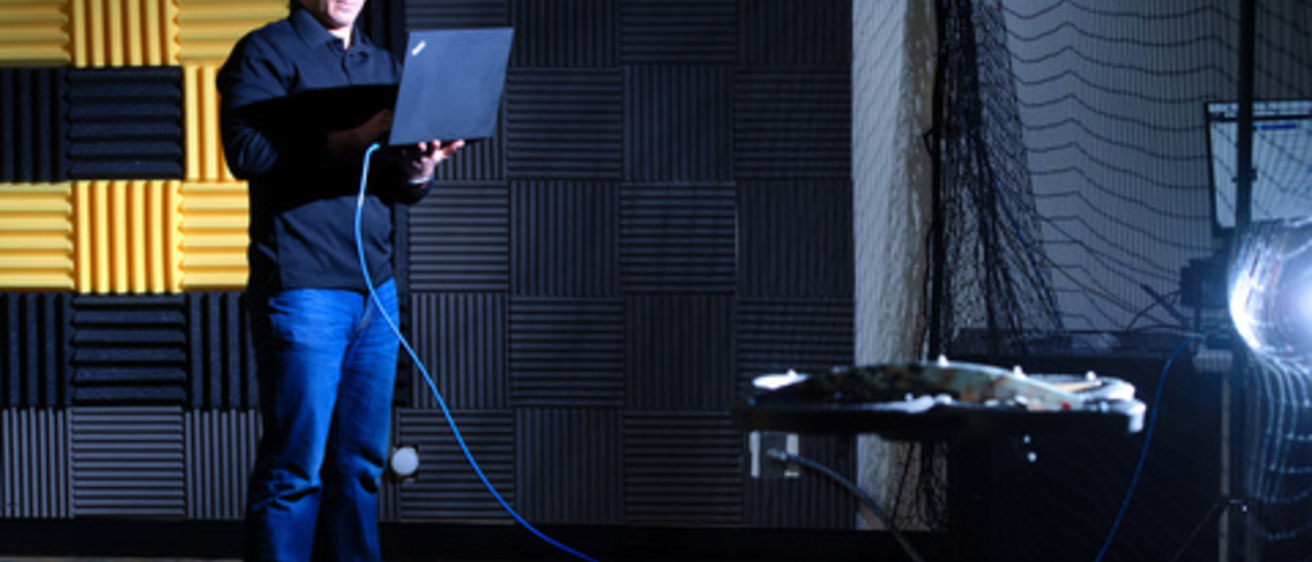Calvin Kielas-Jensen, a third-year PhD student in the Department of Mechanical Engineering, has accepted a 10-week internship with the Air Force Research Laboratory (AFRL) where he will apply skills integrating, estimating, and controlling autonomous systems learned in the lab and classroom at the University of Iowa to real-world challenges.
As a research assistant at the Cooperative Autonomous Systems (CAS) Lab, which is part of the Iowa Technology Institute, the St. Paul, Minn., native has investigated safe and optimal trajectory generation for cooperative autonomous vehicles in real-time and complex scenarios. Applications include using drones to assist in avalanche and mine search-and-rescue missions and maximizing ride-sharing service efficiencies.
More specifically, his research has examined minimum-time search-and-rescue missions by multiple drones, mine-hunting and countermeasure missions by multiple ground robots, and cooperative road search and surveillance by fixed-wing unmanned aerial vehicles (UAVs).
“The main contribution of Calvin is the development of theoretical and computational tools for autonomous navigation of ground and aerial vehicles,” said Venanzio Cichella, an assistant professor of mechanical engineering in the College of Engineering and director of the CAS Lab.
“The advantages of the solution developed by Calvin at CAS Lab compared to other solutions include computational efficiency, allowing the algorithms to run on-board the vehicles through small CPUs, and guaranteed safety against obstacles and un-cooperative vehicles. These features are relevant for the development of autonomous systems in environments inhabited by humans, and therefore of great interest to the Air Force.”
Kielas-Jensen will be working remotely with researchers at Eglin Air Force Base near Valparaiso, Fla., beginning in June.
The AFRL internship is titled “Minimum Uncertainty Path Planning and Guidance without GPS.” The goal is to use trajectory planning and advanced estimation techniques to improve the navigation of an autonomous vehicle when GPS is not available.
Kielas-Jensen said his work with Cichella and in his laboratory has prepared him very well for this opportunity.
“My work with Professor Cichella has taught me how to appreciate theory, leading to my projects being much more methodical, and in the end, better than what I could have accomplished without the outstanding mentorship I have received,” Kielas-Jensen said. “The CAS Lab has allowed me to work on real systems that I would have never been able to work on otherwise. By having access to these state-of-the-art systems, I am able to quickly and reliably test and validate my research.”
Cichella has worked with AFRL researchers before, and Kielas-Jensen had the opportunity to write a paper with some of their researchers. This internship will provide the PhD researcher with several unique experiences, including an assigned mentor.
“I have worked hard to have an opportunity like this, but I would be remiss not to mention the others who have made this possible,” Kielas-Jensen said. “In addition to Professor Cichella, I have also had excellent mentorship in the past from Dr. Marco Ciarcia, Dr. Dennis Helder, and Dr. Steven Hietpas, all from South Dakota State University. I am also very thankful that the University of Iowa has provided me with the resources to make this work a reality.”
